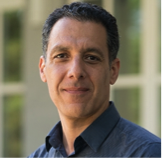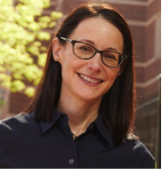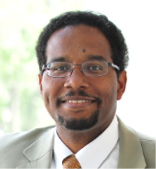Deepfakes use artificial intelligence to fabricate video and audio of people doing and saying things they never did or said. Hollywood has used deepfakes in movies, and museums are exploring them as ways to animate famous paintings and bring long-gone artists to life. But the same technology is being used for sexual harassment in cyberspace and threatening to foment chaos in the 2020 election cycle. How do deepfakes work? What lies ahead? What can be done? #FIAumd #deepfakes
A University of Maryland program in partnership with The Phillips Collection was held on September 27, 2019 to explore these issues. The speakers included:

Hany Farid — Speaker
As a computer scientist at UC Berkeley, he is an expert both on the creation of deepfakes and the forensics needed to detect and defeat them.

Danielle Citron — Speaker
As a legal scholar at Boston University, she is an expert on hate crimes and sexual harassment in cyberspace and has explored the intersection of deepfakes and the law.

Dan Russell — Speaker
As Google’s “director of user happiness,” his work focuses on how searchers can mine the web in the most effective ways and evaluate the quality of the information they find

Darryll Pines — Moderator
As dean of engineering at the University of Maryland, he leads a program that has been nationally recognized for excellence in research, education and student engagement.
The speakers also participated in a program on campus earlier in the day for which Sandy Banisky served as moderator:

Sandy Banisky — Moderator
At UMD’s Philip Merrill College of Journalism, where she teaches media law, ethics, and urban reporting, her students have produced award-winning investigations of living conditions in Baltimore.
Both the program on campus and at The Phillips Collection were organized by the University of Maryland’s Future of Information Alliance in collaboration with these sponsors:
The Andrew and Julie Klingenstein Family Fund
Google
… and from the University of Maryland:
Philip Merrill College of Journalism
College of Information
College of Behavioral & Social Sciences
College of Arts & Humanities
A. James Clark School of Engineering
Office of the Provost
Office of the Vice President for Research
University Libraries
If you are interested in supporting FIA programs and activities, you may do so at https://go.umd.edu/fiasupport.




